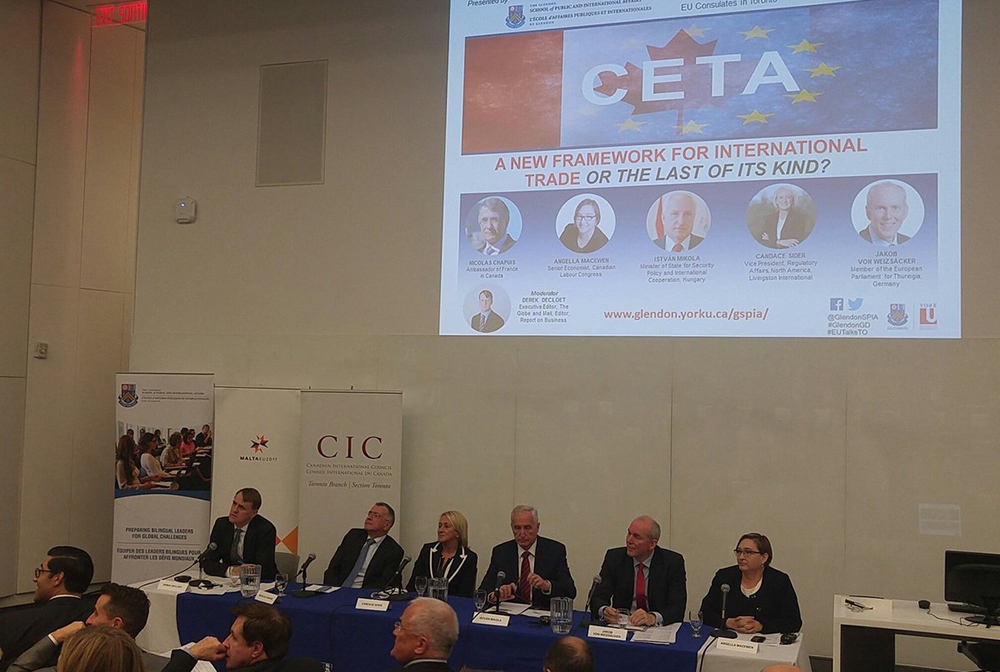Ghizlane Zerzkhane | Staff Writer
Featured image: The last in a series of Glendon Global Debates saw Nicolas Chapuis, Angella MacEwen, István Mikola, Candace Sider and Jakob Von Weizsäcker discuss the Canadian-European Union trade agreement. | Courtesy of La France à Toronto
On March 23, the Glendon School of Public and International Relations, along with EU Consulates in Toronto and the Canadian International Council, hosted a debate on the new Canada-European Union Comprehensive Economic and Trade Agreement, or CETA.
The debate speakers consisted of Nicolas Chapuis, French embassy ambassador in Canada; Angella MacEwen, senior economist at Canadian Labour Congress; István Mikola, minister of state for Security Policy and International Cooperation in Hungary; Candace Sider, vice-president of regulatory affairs of Livingston International; and Jakob Von Weizsäcker, member of the European Parliament for Germany.
Of the five speakers, four of them were in favor of CETA, which is set to take effect by April of 2017.
CETA was first signed in October 2016 and later approved by the European parliament on January 24, 2017. By February 15, the European parliament had adopted the trade deal, which will lead to the application of the deal.
Von Weizsäcker stated he had voted yes for the agreement.
“What we need is free and fair trade. [CETA] offers freer and fairer trade, but it isn’t absolutely free,” he said.
While many of the speakers agreed with CETA being a progressive and fair deal, MacEwen disagreed, sparking a real debate and raising issues on how the environment, public services and workers would be affected by the deal.
MacEwen stated that CETA leaves Canada’s public services vulnerable, doesn’t hold corporations responsible for environmental damage and doesn’t protect workers.
“That is something a progressive trade deal would have,” she said.
According to the Government of Canada and EU consultants, CETA is the first progressive trade agreement between the two governing bodies.
It has been proposed as a test in response to the protectionist Trump administration that could affect free trade globally. CETA will enhance the economic relations between Canada and the EU, as both entities share similar values.
The trade agreement has made it a goal to eliminate 99 per cent of EU tariffs on all Canadian goods, strengthen jobs and enhance the political, economic, social and cultural values to be more progressive.
CETA will increase the trade of cheese and will reduce the prices of foreign automobiles and wine.
“We certainly believe the CETA agreement is a good agreement to Canada; it allows Canada to grow and enhance trades. While there are risks, the benefits are better,” said Sider.
The CETA debate is the last of the series of Glendon Global Debates.





Thanks for writing such an eatseso-und-rytand article on this topic.